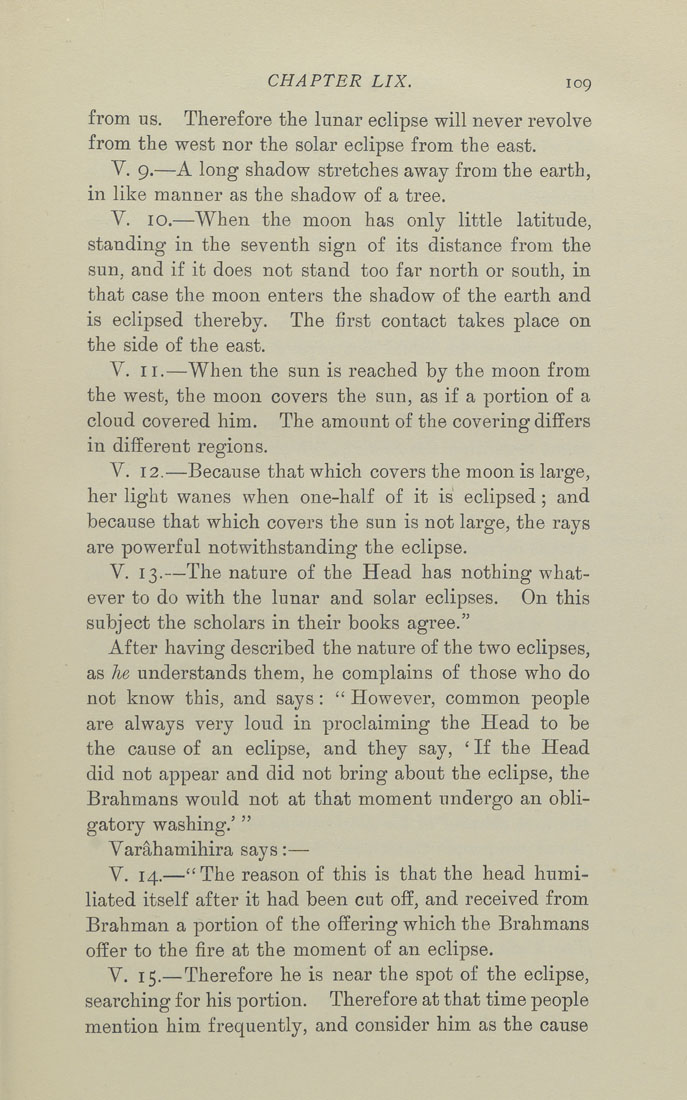Bīrūnī, Muḥammad ibn Aḥmad, Alberuni's India (v. 2)
(London : Kegan Paul, Trench, Trübner & Co., 1910.)
|
||
|
|
|
|
| Page 109 |

CHAPTER LIX. 109 from us. Therefore the lunar eclipse will never revolve from the west nor the solar eclipse from the east. V. 9.—A long shadow stretches away from the earth, in like manner as the shadow of a tree. V. 10.—When the moon has only little latitude, standing in the seventh sign of its distance from the sun, and if it does not stand too far north or south, in that case the moon enters the shadow of the earth and is eclipsed thereby. The first contact takes place on the side of the east. V. II.—When the sun is reached by the moon from the west, the moon covers the sun, as if a portion of a cloud covered him. The amount of the covering differs in different regions. V. 12.—Because that which covers the moon is large, her light wanes when one-half of it is eclipsed; and because that which covers the sun is not large, the rays are powerful notwithstanding the eclipse. V. 13.—The nature of the Head has nothing what¬ ever to do with the lunar and solar eclipses. On this subject the scholars in their books agree." After having described the nature of the two eclipses, as he understands them, he complains of those who do not know this, and says: " However, common people are always very loud in proclaiming the Head to be the cause of an eclipse, and they say, ' If the Head did not appear and did not bring about the eclipse, the Brahmans would not at that moment undergo an obli¬ gatory washing.' " Varahamihira says:— V. 14.—"The reason of this is that the head humi¬ liated itself after it had been cut off, and received from Brahman a portion of the offering which the Brahmans offer to the fire at the moment of an eclipse. V. 15.—Therefore he is near the spot of the eclipse, searching for his portion. Therefore at that time people mention him frequently, and consider him as the cause |
| Page 109 |







